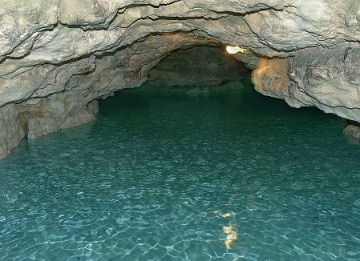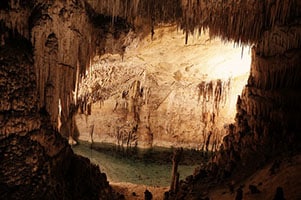 Hydrogeology is the branch of geology focused on the analysis of groundwater , studying especially how to take advantage of it. Their contributions are key to determining how to provide water to populations.
Hydrogeology is the branch of geology focused on the analysis of groundwater , studying especially how to take advantage of it. Their contributions are key to determining how to provide water to populations.
It is important to remember that geology is the science that specializes in the origin, nature, development and current configuration of the terrestrial globe. The prefix hydro- , meanwhile, refers to water .
Returning to the concept of hydrogeology (or underground hydrology ), it is responsible for investigating how and where groundwater arises. It also investigates its links with the soil ; examines its properties (both chemical, physical, radioactive and bacteriological) and its state (liquid, gaseous and solid); and inspects its circulation.
Two other concepts that water is related to in the study of hydrogeology are rocks and wetlands . A wetland is defined as a normally flat space of land whose surface is flooded, either intermittently or permanently. The fact that water covers it so regularly causes it to become saturated and lose its oxygen, which opens the doors to an ecosystem that is neither terrestrial nor aquatic.
Beyond contributing to the use of groundwater by humans , hydrogeology also provides important knowledge about pollution and helps to understand the life cycle of different chemical elements.
Since ancient times, Homo sapiens has tried to understand hydrogeological mechanisms . Since subsistence without access to water is impossible, man has always set out to observe nature to find this vital resource, trying to determine how to access it. The collection of springs and the construction of galleries and wells, in this framework, were among the events that gradually led to the development of hydrogeology.
It can be said, in short, that hydrogeology is a scientific discipline whose object of study is the waters stored and circulating inside the Earth . Its birth is associated with the search for underground water for exploitation, although over time it incorporated other interests, such as the treatment of environments affected by the contamination of these waters.
Precisely, in addition to pursuing the understanding of the chemical elements that reside in groundwater, hydrogeology is also interested in the study of those substances that can contaminate them. Of these, their dispersion, their mobility and the impact they generate on the environment can be observed. In other words, hydrogeology underwent an evolution throughout history that led it to become a fundamental science for evaluating highly complex environmental systems.
 Addressing the hydrogeology of a given region involves the study and evaluation of the following points, among others:
Addressing the hydrogeology of a given region involves the study and evaluation of the following points, among others:
* the characteristics of the local climate, its rainfall regime and the composition of its waters;
* rocks, taking into account their characteristics, such as porosity, permeability, chemical composition and cracking, without leaving aside geotectonic and geological issues;
* the links between groundwater, caves and geology;
* all those processes that directly or indirectly affect the movement of groundwater, both in sediments and rocks ;
* aspects such as hydrogeochemistry and hydrochemistry.
Human beings have been trying to decipher all the secrets of the Earth's architecture for a long time, and one of the ways they found to achieve this goal was to divide it into several domains, some of which are the following: the geosphere , the internal part and which includes the earth's mantle and the various continents; the atmosphere , the different gases and their groups; the biosphere , the space that corresponds to the living mass; the hydrosphere , all those ways in which we find water on our planet .
